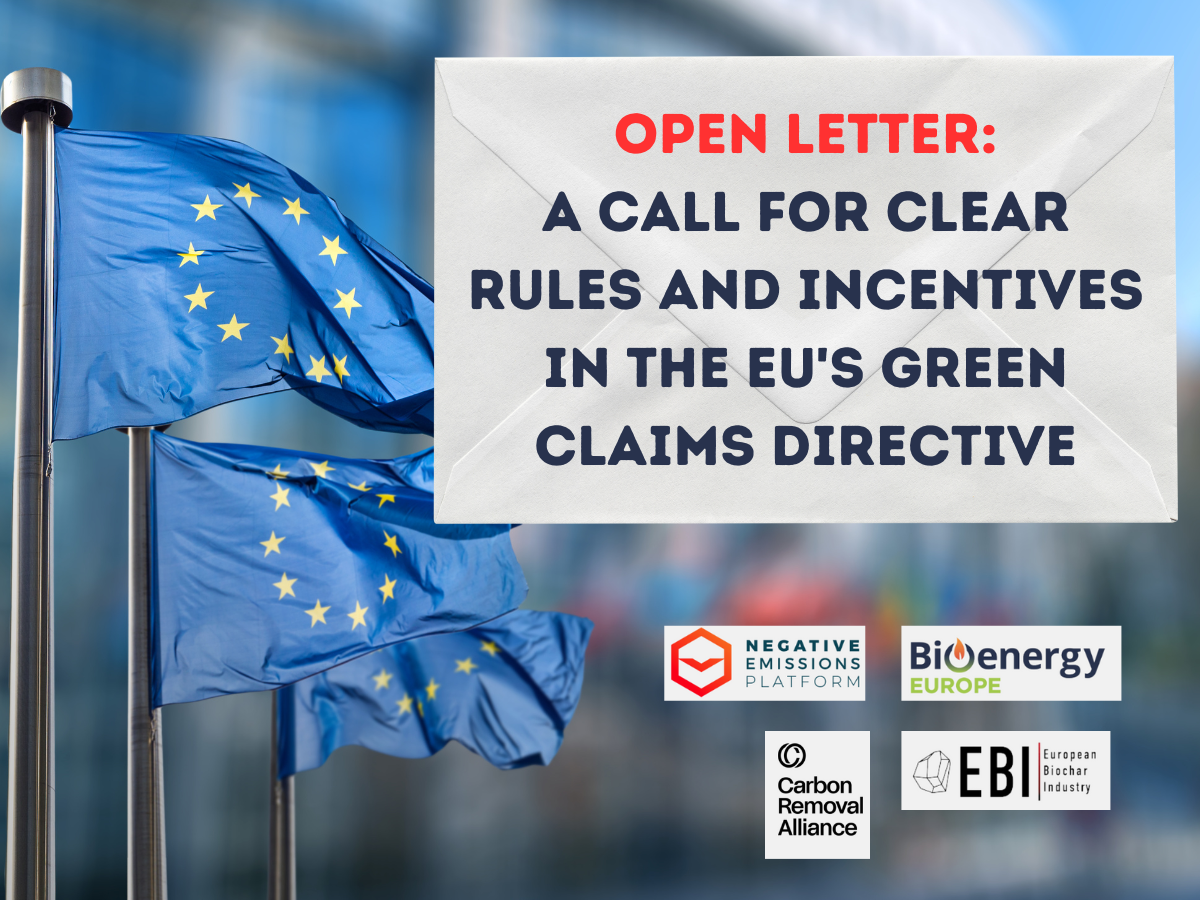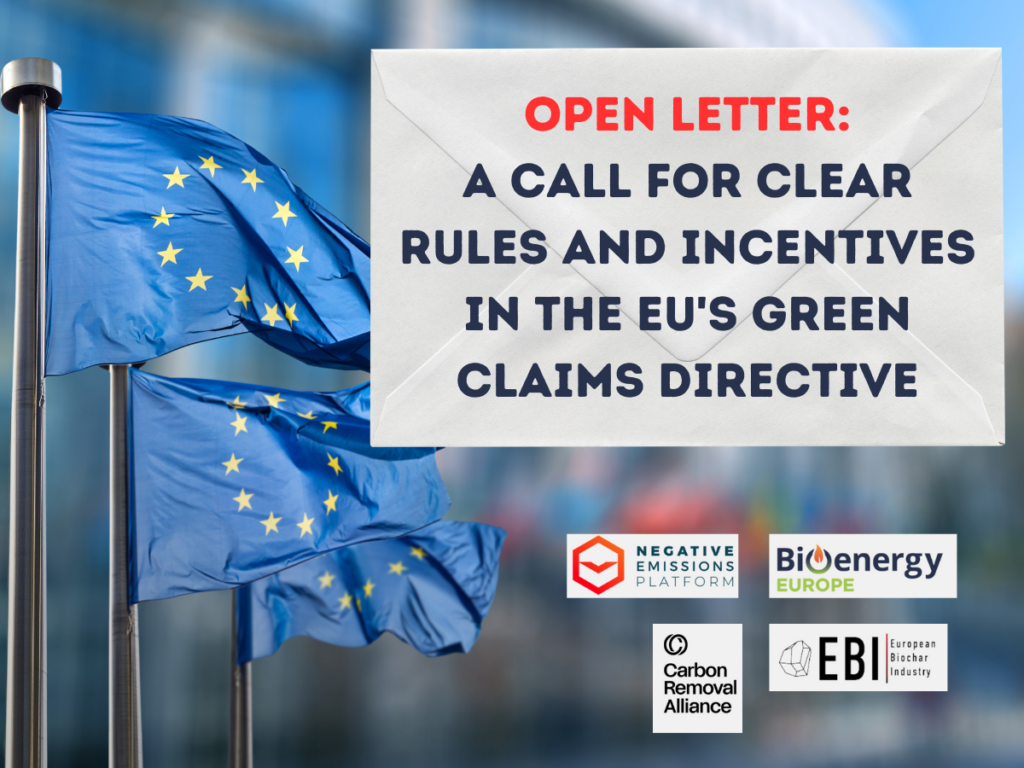
Open Letter: A call for clear rules and incentives in the EU’s Green Claims Directive
The CDR sector asks that the Green Claims Directive recognises the role of climate claims to incentivise investment in permanent and high-integrity carbon removals, as long as this neither impedes nor reduces a company’s absolute emissions reduction target.

Brussels, 5 February 2024 – Bioenergy Europe, Negative Emissions Platform, Carbon Removal Alliance and European Biochar Industry stress the importance of clear rules and incentives in the EU’s Green Claims Directive. Climate claims are essential to incentivise investments in permanent and high-integrity carbon removals, and companies should be encouraged to make claims on quality removals, without impeding nor reducing their absolute emissions reduction target.
Reducing greenhouse gas (GHG) emissions remains the most immediate and effective way of slowing climate change and should be the primary focus of the EU’s climate activity. However, rapid decarbonisation of our economy is no longer sufficient. Each of the 230 scenarios the IPCC has modelled to limit global warming to below 1.5°C includes carbon dioxide removals (CDR) at scale, ranging from 6-10 Gt of CO2 removed per year by 2050. Therefore, in order to achieve the EU’s ambitious net-zero targets, near-term investments in high-quality, permanent carbon removals needs to be incentivised. Given the current regulatory framework, the only source of income for carbon removal relies on state subsidies and voluntary carbon markets. Policymakers should seek to prohibit greenwashing while facilitating near-term purchases of high-integrity carbon removal.
Corporate environmental claims play a critical role in carbon removals purchasing and investment decisions, companies need appropriate rules regarding claims in place to incentivise investment into high-integrity, permanent carbon dioxide removals (CDR).
Companies should be incentivised to purchase high-integrity carbon removals, provided these claims are transparent and neither impede nor reduce absolute emissions reduction efforts and targets. Allowing companies to make compensation claims with regard to these purchases is critical and will encourage investment in the nascent carbon removals market and support the EU’s negative emissions target.
Whilst we support the aim of recent EU pieces of legislation to avoid greenwashing and increase transparency around climate-related claims, we are concerned by the lack of clarity of the current legislative process. The rules under development today do not universally encourage near-term purchases of CDR, nor investment in this sector. It is therefore important that rules around climate claims are designed to support CDR development at scale. Further uncertainty is hindering EU policy objectives and the efficient deployment of negative emissions.
Considering this, the signatories urge policymakers to:
- Recognise the role of climate claims for incentivising investment in permanent and high-integrity carbon removals, without impeding nor reducing a company’s absolute emissions reduction target.
This increases ambition, as it incentivises companies to take additional responsibility for their gross emissions immediately, rather than applying ineffective traditional off-set instruments. Moreover, this aligns with the provisions set out in the European Sustainability Reporting Standards (ESRS) which requires companies to explain any green claims of GHG neutrality that involve carbon offsets, evidence the integrity of offsets used and prove that this does not impede the achievement of GHG emission reduction targets.
- Ensure that removals credits are based on high-quality removals of carbon from the atmosphere/biosphere with emphasis on permanent removals over time, whilst respecting the like-for-like principle.
- Assess the treatment of carbon removal credits from outside the EU Market, given that the scope of the CRCF will be limited to carbon removals within the EU.
Related Posts
No related photos.




